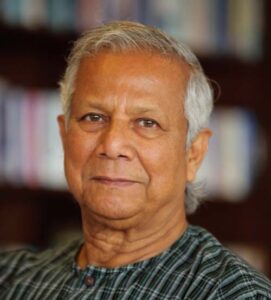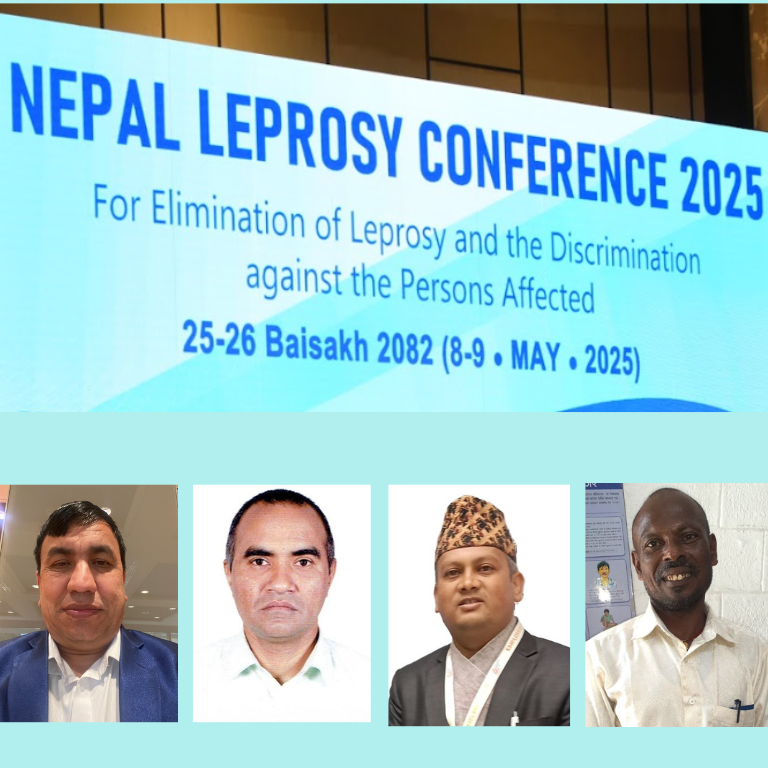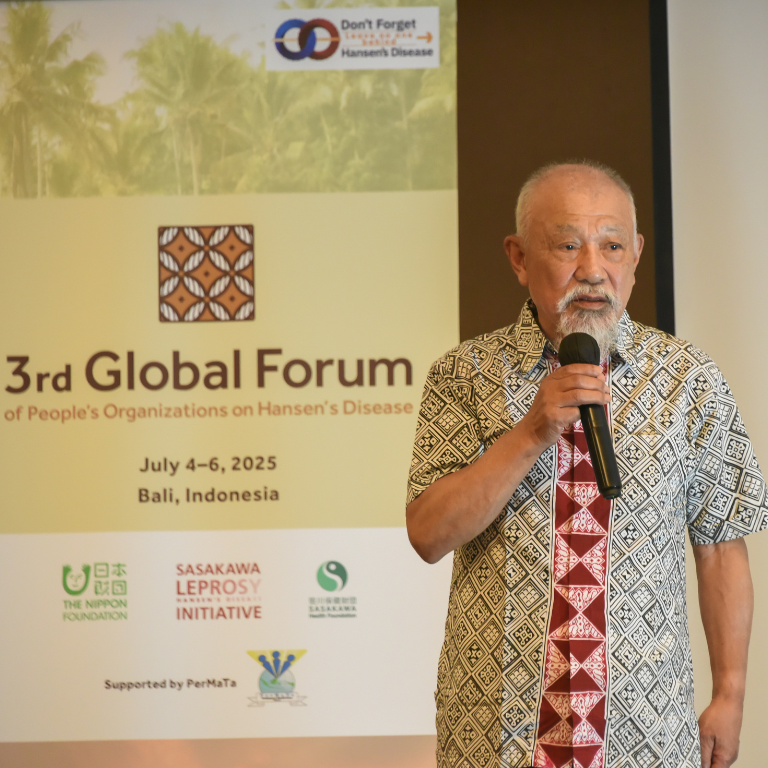
Professor Muhammad Yunus
2006 Nobel Peace Prize Laureate and founder of Grameen Bank
Yunus Centre
The Yunus Centre strives to engage individuals and organizations in creating, promoting, and maintaining social business by spreading the concept through workshops, internships, and projects.
https://www.muhammadyunus.org
Based on the idea that “the poor themselves can create a poverty-free world” as long as we “free them from the chains that we have put around them,” Professor Muhammad Yunus developed a system of “microcredit” that gives very small collateral-free business loans to society’s poorest people. He institutionalized this system in Bangladesh with the Grameen Bank. Since its establishment in 1983, the Grameen Bank has provided US$6.5 billion in collateral-free loans to 7.5 million clients in more than 82,000 villages in Bangladesh, with women making up 97% of its loan recipients. In 2006, Professor Yunus and the Grameen Bank were jointly awarded the Nobel Peace Prize “for their efforts to create economic and social development from below.”
On the occasion of the 2015 Global Appeal to End Stigma and Discrimination against Persons Affected by Leprosy, Professor Yunus sent a message in which he said it is essential that every possible means is used to create awareness of the disease.
The COVID-19 pandemic, which began affecting most countries in 2020, has made sustaining awareness of leprosy more difficult. At the same time, the social and economic impact of the pandemic has hit vulnerable communities of persons affected by leprosy particularly hard, which makes awareness-raising more important than ever.
In this context, and with the 2022 Global Appeal happening this month, the Leprosy Bulletin returned to Professor Yunus for an interview.
LB (Leprosy Bulletin): With the world in the continuing grip of the COVID-19 pandemic, other diseases tend to receive less attention. How would you frame discussion so that leprosy-related issues continue to be addressed?
Professor Yunus: The COVID-19 pandemic has created an excellent context for talking about the fundamental issue of healthcare. The issue is the inadequacy of healthcare in almost all countries. The pandemic has brought out very clearly how inadequate the public health system is globally. It has shown how profit-maximizing pharmaceutical companies remain busy with their profit calculation rather than saving the lives of people. Lack of frontline workers in the health sector is another basic problem. It is not equipped to deal with an emergency situation.
Leprosy is one disease which highlights the unpreparedness of the healthcare system. While we should encourage everybody to work dedicatedly for any particular disease, like Mr. Sasakawa does for leprosy, we must not forget to focus on each disease within the framework of a total healthcare system. We cannot succeed in one disease while ignoring the others.
We must aim for a systemic solution. No disease is less important than any other. They are interlinked.
LB: Leprosy is a disease that is closely related to poverty. What can be done to help people escape poverty?
Professor Yunus: The best way to help people overcome poverty is to treat each person as an entrepreneur. All human beings are born as potential entrepreneurs. But our wrong economic thinking turns them into job-seekers, and then society fails to provide decent jobs for everybody. This creates poverty. We must create a new financial system that can guarantee finance for every single person to become an entrepreneur. Our present banking system is busy financing the rich, totally ignoring the poor. Women are excellent entrepreneurs. If we create an appropriate financing system, all people, particularly women, will be able to demonstrate how skillful they can be as entrepreneurs. Our initiative to create a new banking system to give microcredit to all poor people, particularly to women, has demonstrated it very clearly.
LB: The COVID pandemic has changed the world dramatically. What must we learn from this experience?
Professor Yunus: The pandemic has made it very clear how wrong our economic thinking is; how inadequate our institutions based on wrong thinking are; how fragile the economic existence of the poor is; how terribly lop-sided our wealth distribution is. Wealth is concentrated in the hands of a small number of lucky people. When the pandemic hit the world, millions of people who already had less were pushed under the poverty line, or brought closer to the line, while super rich people made trillions of dollars.
Our lesson is very clear — we must not go back to the old economic system when the pandemic is over. We must create a new system which will stop us from continuing our journey on the present suicidal path. We must build a new road to go to a new destination.
LB: In the two decades since becoming the WHO Goodwill Ambassador for Leprosy Elimination, Yohei Sasakawa has made over 200 visits to more than 100 countries, seeing the situation for himself and conveying what he has seen and heard to their leaders. As soon as travel restrictions ease, he intends to resume his overseas missions. What advice do you have for him?
Professor Yunus: I congratulate Mr. Sasakawa for his commitment and dedication to the cause of eliminating leprosy from the world. His global campaign has drawn attention to the disease of leprosy all around the world. I very much hope that he’ll promote a solution to leprosy within a clearly defined new healthcare system. This new system must be a social business healthcare system. This new system should be an alternative to the profit-maximizing healthcare system. I also hope that he’ll promote the creation of social business pharmaceutical companies. I encourage him to lend his voice to change the system rather than looking for solutions within the system.





